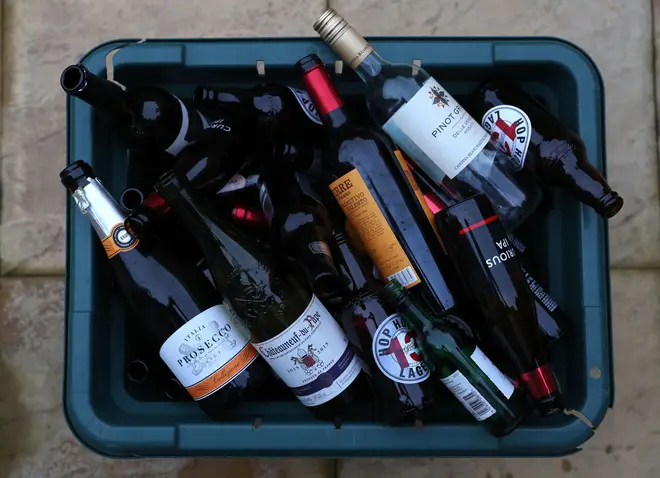
Richard Spurr 1am - 4am
28 October 2021, 14:45

A message to the Chancellor: when people are struggling to afford to eat, when people are struggling to afford to heat their homes, a few pence off the price of a bottle of prosecco really doesn’t cut it.
In a budget which in many respects was aimed squarely at taking the wind out of the SNP’s sails, the Chancellor failed in two major areas to really prove that the union matters - and those failures will be remembered long after people have forgotten that a handful of council projects got some cash through the levelling up fund.
There are 613,000 Scottish households already living in fuel poverty - 311,000 of these considered to be extremely fuel poor - before the last few months’ extreme hikes in energy costs. It’s been predicted that another 100,000 households will be plunged into fuel poverty as a result of the energy crisis.
READ MORE: Middle income families face paying ‘£3,000’ more in tax after Rishi Sunak’s Budget
READ MORE: Chancellor defends Prosecco price cut claiming it is 'not the preserve of wealthy elites'
Fuel poverty is felt across the UK but it’s the northern-most, rural areas of Scotland who feel it most sharply as temperatures plummet. With Mr Sunak’s decision not to cut VAT on energy bills, the Chancellor has done nothing to help those people, and he’s left an open goal for the SNP.
Similarly he turned his face against reinstating the £20 Universal Credit uplift which came to an end in September. Yes, there has been a welcome change to the tapering in UC, so those on incomes so low they still have to rely on the benefit, will have some more money in their pockets. But, and it’s a very big but, it doesn’t help the 60 per cent of Scots on UC who are not in work. They are still dealing with a £1,000 cut to their benefit, while facing rising energy and food costs.
Research has also shown that 1.4m people in Scotland ran out of money before pay day during the pandemic, and there was nothing in the budget which suggests that will improve.
Of course, the Chancellor did splash the cash on health and education and other public services (apparently forgetting which party had instigated austerity in the first place); money which will, given the Barnett formula mechanism, see the Scottish budget rise by £4.6m.
And the levelling up fund kills two birds with one stone for the Conservatives: firstly, it circumvents the Scottish Government by directly funding projects councils would like to see up and running (including SNP local authorities) and while the SNP in the Scottish Parliament will argue this undermines devolution, the Tory counter to that is this is devolution in action - but just beyond the confines of Holyrood.
And although Michael Gove and others say they don’t care just who gets the credit for this funding - Westminster or Holyrood - come next May’s council elections that message will undoubtedly change.
Secondly, it gives No voters a new peg on which to hang their economic arguments against Scottish independence. Look, they will say, not only has the Scottish Government’ budget risen to its highest allocation since devolution, there’s this extra cash too - why would anyone want to end all this apparent largesse?
Certainly the numbers are big and all eyes are now on the Scottish finance minister Kate Forbes to see what she will do with the money when she sets her budget on December 9.
But there is still a perfect cost of living storm facing Scots - and others - this winter and a cheap bottle of plonk is not a solution that.